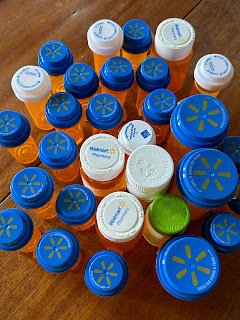The statistics on sepsis are not good. People with sepsis face a 15 to 30 percent chance of death. For those with severe sepsis or septic shock it climbs to 40 to 60 percent. One in three survivors is back in the hospital within 3 months with infection or sepsis.
According to the CDC, recovery from sepsis can involve some awful stuff: general weakness and fatigue, breathlessness, body pain and aches, difficulty moving, difficulty sleeping, lack of appetite, food doesn’t taste good, weight loss, dry itchy skin which may peel, brittle nails and hair loss.
Survivors may avoid people and want to isolate themselves, have flashback to their illness, confusion, anxiety, poor concentration, memory loss, anger, depression and frustration.
I am one of the lucky ones, but at times it hasn’t felt that way. I spent 17 days in the hospital, most of that time in the ICU. I only remember the last two days. The rest of the time I was either in a coma or drugged so heavily that I have no memories. Rob and I are convinced that my brain was just protecting me from the whole painful experience by shutting down any memories.
The days I do remember are fuzzy. I couldn’t sit up by myself but the nurses started putting me in a wheelchair and pushing me to the bathroom. There they would help me, then put me back to bed. The feeding tube had been removed and I guess they brought me meals though I don’t remember a single meal. They said I refused to eat. I spent most of the time sleeping.
The doctor in charge of my case sat down and had a talk with me, the first time anyone had really told me what was happening.He did most of the talking because I had difficulty speaking. He explained my diagnosis and stressed that I had to start eating. He said he didn’t care what I ate or how much as long as I ate something several times a day. As if on cue Rob walked in with a McDonalds bag with a breakfast sandwich and a milkshake. The doctor had a big smile and said “perfect “. Do you thing they conspired on the timing? I think I had two bites of the sandwich and a few sips of the shake but they both seemed pleased.
The next thing the doctor said didn’t go over well. He said I was being transferred to a skilled nursing rehabilitation center. I wanted to go home.
The next day they strapped me into a wheelchair and a van took me to rehab. I was surprised how bright and quiet it was. I spent two weeks at rehab and I can’t say enough good things about it. The nurses and aides were all wonderful, friendly and attentive. The therapists were tough but did all kinds of extras, like a manicure and brushing my hair, to make me feel better. The doctor had himself had ehrlichiosis so he understood some of what I was dealing with.
This was my room.
The first couple days I mostly slept but they helped me sit up and even to stand. Then with an aide on each side they helped me actually walk to the bathroom.
They were concerned that I didn’t want to eat so they sent the dietician to see me. She and I hit it off and she started making special meals that she thought I might like. After breakfast each day she would bring me a big bowl of fruit to snack on and before she left each day she brought me juice, fruit, chips and cheese crackers to snack on overnight. She even sent food for Rob so he could join me for meals and encourage me to eat. During the day nurses dropped by with juices and protein drinks. They wanted me well hydrated and getting more protein. I had a strong aversion to meat, caffeine and sweets. I learned that there’s a condition known as Alpha-gal that can be a result of ehrlichiosis. It’s an allergy to meat and dairy. They tested me but I was negative. I can eat meat, it just has no appeal.

After a couple days of getting acclimated the real work began. The doctor had told me I might need a wheelchair for six months but I didn’t agree. The nurses and therapists let me walk to the bathroom using a walker as long as one of them went with me. A sweet aide came and wheeled me to the whirlpool bath and she and Rob helped me in. It felt wonderful on my sore muscles. She started washing my hair and found that my hair was full of glue from the brain sensors. She and the therapists worked on my hair every day rubbing in conditioner to remove the glue. I still had a lot of glue left when I got home.
The physical and occupational therapists walked me up and down the hall every day with a gait belt around me so I couldn’t fall. They gave me exercises to work my fingers and they sat and talked with me to improve my speech. I asked if I could try stairs and the second week with one of them on each side I walked up and down three steps. I felt exhausted but I knew I wouldn’t need that wheelchair.
Isn’t this the cutest flower arrangement? The Lapdogs and their Mama sent it. We met years ago thru the blog and though we’ve never met in person, we are good friends.
After two weeks the therapists said I was ready to go home if I agreed to have home health care. I did not want it but the doctor and Rob overrode my objections. That morning I had a special breakfast then a real shower. Finally the time came and Rob wheeled me out of my room. A couple people who had been in therapy with me came to say goodbye. When we got to the front desk my nurses, aides and the dietitian were all waiting for me. There was a big shopping bag on the desk and I thought it was a present. It was the worst present ever. The bag was full of medicine, a thirty day supply.
Getting home felt good but exhausting. I was too weak to connect with the dogs, though Mackey slept next to me every chance she could. Rob insisted I eat several times a day and kept getting me juice and protein drinks. I had lost 25 pounds in the hospital and was still losing.
Next I met my ‘home team’. A nurse came weekly for a month to check on me and go over any changes in my meds. A physical therapist came weekly for two months and helped me learn to walk on my own. There were silly dance steps to improve balance and a timed game where I had to sit and stand designed to test my strength. The second month we began walking outside which included our front steps. Again I wore a gait belt on our walks so he could catch me if I fell.
My occupational therapist and I bonded right away. We played with therapy putty, used elastic bands and lifted weights. She saw some of my knitting and encouraged me to try it. At first it seemed awkward and slow but now I can do pretty well.
We talked a lot about my fears and expectations. She felt I was experiencing PTSD and called my doctor to recommend talk therapy for it. I was actually sad to see therapy end but they both felt I could continue on my own and if I needed more help, it was available.
So now I was home and healing. Life was good again, right? Well not exactly. Next post I’ll let you in on what life after sepsis is like.

















